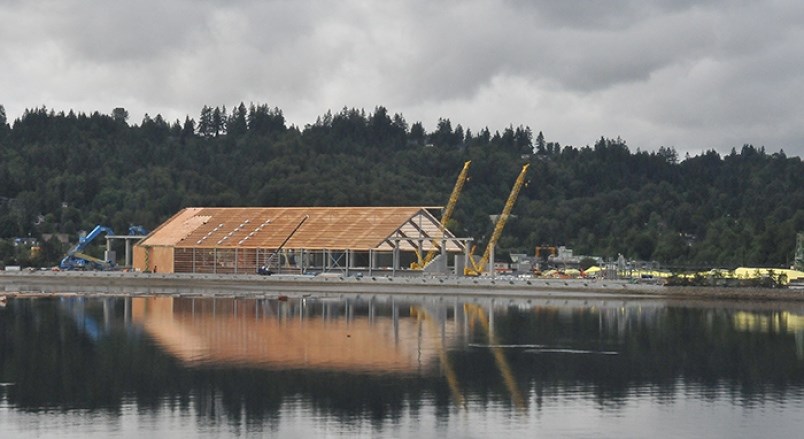Pacific Coast Terminals has long benefited from community support generated through its generous contributions to community events, its longstanding presence in the region and its stated commitment to environmental sustainability.
Since the 1960s, its sulphur piles have been a bright yellow fixture on the waterfront and PCT has been one of Port Moody's largest industrial employers and taxpayers.
But times have changed and now PCT is under much more scrutiny than it may have experienced in earlier times as it builds a potash handling facility to expand its business.
Among the concerns raised were over a plan to build an island, now off the table, the sheer size of the shed that now dominates the skyline and plans to dredge in Burrard Inlet.
It's true the material that will be dredged is not virgin soil and that the inlet has been vastly altered through industrialization.
A similar project was allowed in 1995 while today PCT has to jump through numerous hoops and provide scientific evidence that the dredged material is safe for marine life.
Is PCT under too much scrutiny?
We think not. People are much more sensitive to the work corporations are doing along the waterfront.
You could blame the surge in public interest on the Trans Mountain pipeline expansion project, which has spurred a sense of protectiveness for the sensitive marine environment, but today's corporations and government regulatory bodies do not operate in isolation and need social capital to continue to do their work.
So in this new climate, PCT, Port Metro Vancouver and the newly renamed Environment Canada and Climate Change (formerly, the federal Ministry of Environment) will have to go beyond the status quo of "no net loss."
They should answer to the public, represented by the city of Port Moody, and provide thorough evidence of net benefit for works that alter the shoreline. Anything less than transparent, evidence-based due diligence on the environment sustainability file and they will lose the public's trust.



